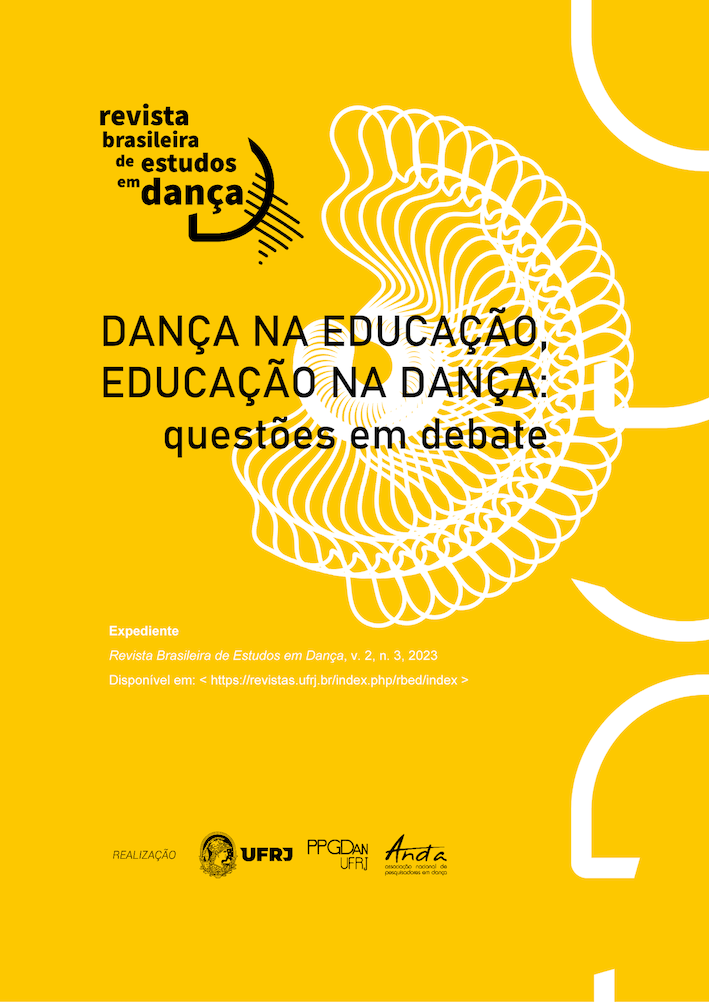This is an outdated version published on 2023-12-01. Read the most recent version.
Art Education:
Perspectives for approaching the body in education, situated experience in creation FIDAMOV
DOI:
https://doi.org/10.58786/rbed.2023.v1.n3.59015Keywords:
Educación, Educación Artística, Cuerpo, Corporeidad, Relación Pedagógica, FIDAMOV.Abstract
From the experience of the doctoral programme at the University of Barcelona and research with the Nego Fugido cultural manifestation in Brazil, different approaches to the body have emerged, which are taken up in this article to provide possibilities for building the pedagogical relationship with the body in arts education. To share a localised experience in Chile related to the creation of a Festival that seeks to link movement arts programming with art education plans in and out of school, as a possibility to strengthen or develop art education and at the same time contribute to the formation and development of audiences.
Published
2023-09-02 — Updated on 2023-12-01
Versions
- 2024-05-09 (3)
- 2023-12-01 (2)
- 2023-09-02 (1)
How to Cite
ALEJANDRA CERDA, Consuelo. Art Education:: Perspectives for approaching the body in education, situated experience in creation FIDAMOV. Brazilian Journal of Dance Research, [S. l.], v. 2, n. 3, p. 115–145, 2023. DOI: 10.58786/rbed.2023.v1.n3.59015. Disponível em: https://revistas.ufrj.br/index.php/rbed/article/view/59015. Acesso em: 11 dec. 2024.
Issue
Section
Artigos
License
Authors who publish in the Revista Brasileira de Estudos em Dança are
responsible for the content of signed articles and retain copyright.
They grant the journal the right of first publication with the work simultaneously
licensed under the Creative Commons Attribution-NonCommercial 4.0 License
(Open Archives Initiative - OAI). This feature, used for open-access journals,
allows sharing work for non-commercial purposes and acknowledges
authorship. If the text is later published in another vehicle, the author
must inform that it was initially published as an article in the Revista Brasileira
de Estudos em Dança. Therefore, even if the journal owns the first publication,
authors are entitled to publish their work in institutional repositories or on
their personal pages, even if the editorial process has not been completed.
The journal reserves the right to make normative, orthographic, and grammatical changes to maintain the language standard, respecting the authorial style.

